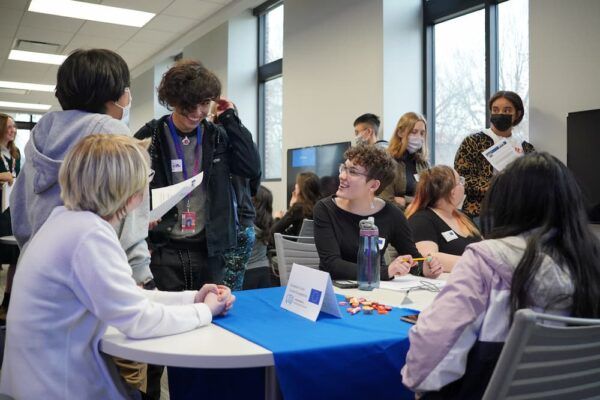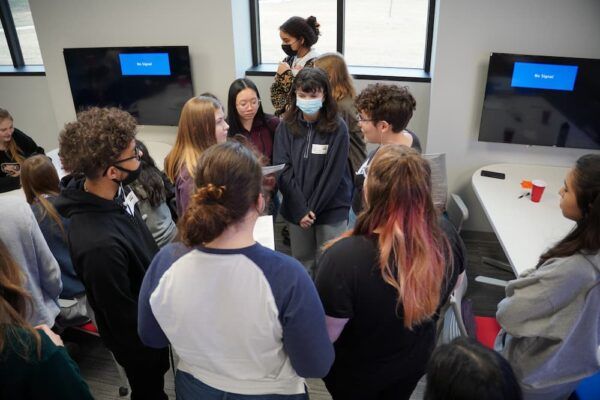As part of the ongoing Newman STEM Exploration Program (NSEP), Associate Professor of Chemistry Ryan Huschka and Associate Professor of Philosophy Jamey Findling are helping students understand and propose possible solutions for the issue of climate change.
Originally an initiative of Climate Interactive, this climate change project was included as a part of NSEP so that campers could see a world in which they are the leaders capable of making change.
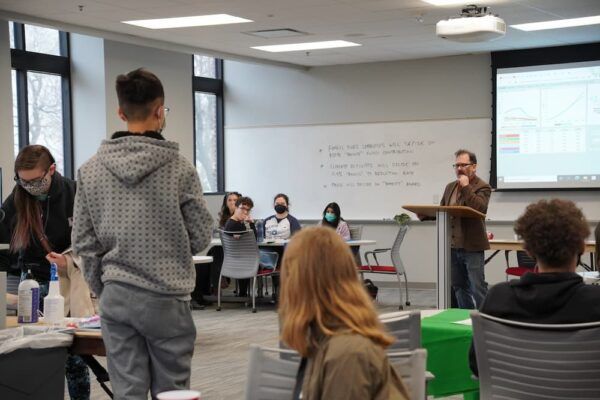
“What we did is conduct the ‘C-ROADS’ world climate simulation,” Findling said, “which asks students to imagine they are United Nations delegates from various countries or regions around the world who need to negotiate a climate agreement that will — according to the climate model provided as part of the game materials — keep global warming well below 2.0°C by the year 2100.”
He likened the experience to “Reacting to the Past,” an Honors Program game led by Professor of History Kelly McFall. Though it is not as comprehensive and does not represent a moment in history, this simulation gives students the chance to think critically about how society could come together to fight climate change.
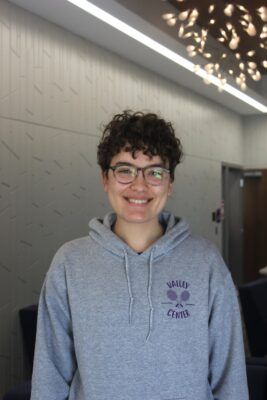
Attendee Cambree Ricks, from Valley Center High School, felt that the experience was enlightening, as it helped her view the issue from a larger, more political standpoint.
“You realize how each country is so interconnected and how they can’t really do much if the other countries won’t do anything,” Ricks said. “People always tell you, ‘it’s just the big companies that are making the biggest impact,’ but when you look at that impact, you’re like, well, I have to do something to help anyway, because if I don’t do something to help, then why would I tell other people to do something to help?”
Attendee Janett Lerma-Reyes, from Northwest High School, was also moved by the simulation, saying that she was inspired by the reality of the statistics.
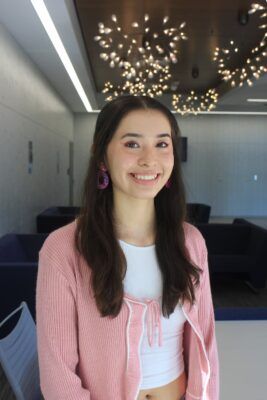
“Dr. Hushka told us a whole bunch of really shocking statistics about how in a couple hundred years, because of the increase in temperature, there’s just gonna be a major rise in sea levels. And he just told us so many facts that really put it in perspective for me, like, the world is gonna end. It was just really mind-boggling.”
Even so, these frightening circumstances were not without hope, as students worked together searching for a means to help the Earth heal its wounds, and correct the harm that has been done. Yet, the stakes remained high as they learned just how difficult it can be to maintain unity and a collective mission in the face of global distress.
“In terms of relevance,” said Findling, “I think the simulation helps students understand not only the importance but also the challenges and complexities of making significant progress on an issue like climate change. Even when everyone recognizes its importance, there are many competing interests at play.”
In terms of relevance, I think the simulation helps students understand not only the importance but also the challenges and complexities of making significant progress on an issue like climate change.”
Professor of Philosophy Jamey Findling
Change happens in both small and large ways, and recognizing that is one of the first steps toward making it possible.
“The students generally seemed to understand that climate change is an issue that requires action, but it’s hard for them to imagine what that action might look like. While we often hear about things individuals can do like cutting back on energy use, eating less meat, etc., students might not think as much about the role of nations and institutions in bringing about large-scale change.”
Over the course of the simulation, everything kept coming back to unity.
“That’s also what I hope the students came away with — a sense that avoiding the worst impacts of climate change is going to require countries to work together, even if that means setting aside some of their other issues,” Findling said. “The students had a lot of fun with the national and regional rivalries that the game brings out, but I think they also came away with a sense of the common goal all the delegates shared.”
Ultimately, the students saw that focusing on their common goal is what allows for their success.
“I think they were able to see that the challenge is not so much scientific or technical — most of that knowledge has already been well-established (although there is always room for new breakthroughs). Instead, the issue is overcoming political and economic conflicts and pressures in a way that reflects the guidance that science can offer.”


